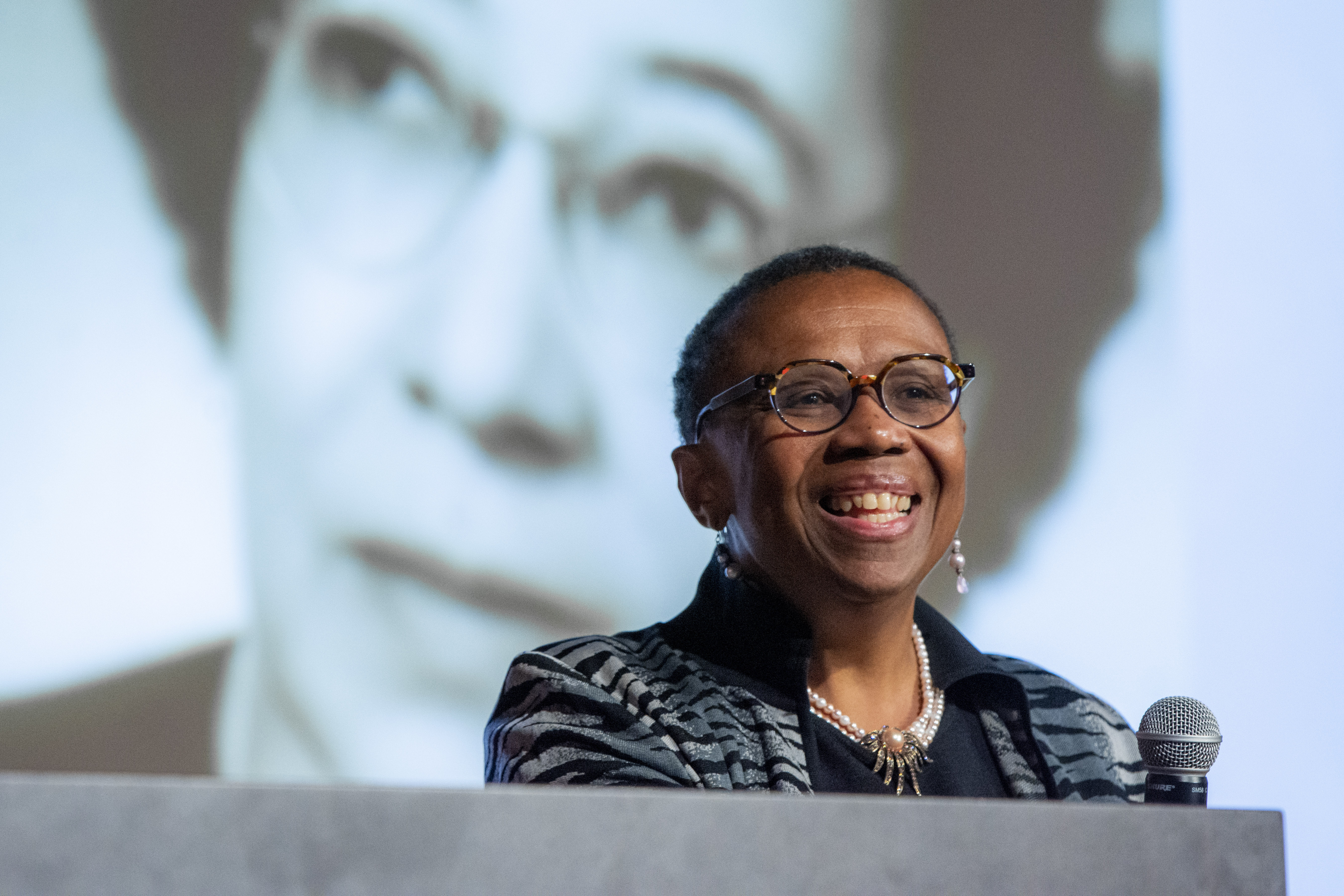NextGen Physician Scientists Lecture Series: Dr. Vanessa Northington Gamble M.D., Ph.D.
by Nowrin Chowdhury (G2)
 On February 18, 2021, the National Association of M.D.-Ph.D. programs hosted Dr. Vanessa Northington Gamble M.D., Ph.D. for their most recent installment of the NextGen Physician Scientists Lecture series, which features discussions of science and career presented by outstanding physician-scientists of color from across the country. Dr. Gamble is a University Professor of Medical Humanities at George Washington University, an expert in the history of race and racism in American medicine, and Chair of the committee that demanded a public apology from President Clinton for the Tuskegee Syphilis trials. During her talk entitled “Activism-Driven Research: Black Lives Matter in Medicine”, Dr. Gamble interweaves her own story with that of Dr. Virginia Alexander, a pioneering black physician who focused on medicine, public health research in race and medicine, and anti-racism activism. Although Dr. Alexander died four years before Dr. Gamble was even born, Dr. Gamble recognizes the parallels in her story and in Dr. Alexander’s. For instance, they both grew up in a poor neighborhood in Philadelphia, struggled in a predominantly white and male dominated field during medical school, and made an active choice every day to identify and address how racism has impacted medicine and health of minority populations. Dr. Alexander believed that physicians should expand their work past medicine, and Dr. Gamble herself felt an “obligation to be a part of civic, political, and social activism.”
On February 18, 2021, the National Association of M.D.-Ph.D. programs hosted Dr. Vanessa Northington Gamble M.D., Ph.D. for their most recent installment of the NextGen Physician Scientists Lecture series, which features discussions of science and career presented by outstanding physician-scientists of color from across the country. Dr. Gamble is a University Professor of Medical Humanities at George Washington University, an expert in the history of race and racism in American medicine, and Chair of the committee that demanded a public apology from President Clinton for the Tuskegee Syphilis trials. During her talk entitled “Activism-Driven Research: Black Lives Matter in Medicine”, Dr. Gamble interweaves her own story with that of Dr. Virginia Alexander, a pioneering black physician who focused on medicine, public health research in race and medicine, and anti-racism activism. Although Dr. Alexander died four years before Dr. Gamble was even born, Dr. Gamble recognizes the parallels in her story and in Dr. Alexander’s. For instance, they both grew up in a poor neighborhood in Philadelphia, struggled in a predominantly white and male dominated field during medical school, and made an active choice every day to identify and address how racism has impacted medicine and health of minority populations. Dr. Alexander believed that physicians should expand their work past medicine, and Dr. Gamble herself felt an “obligation to be a part of civic, political, and social activism.”
In her moving talk, Dr. Gamble also identifies the difficulties in her own path. She highlighted her many successes in policy changes, creating programs and classes at universities, and publishing books. However, she focused more on the “subcutaneous scars of racism,” struggles, disappointments, and constant feeling of imposter syndrome that brought her to where she is, which she also hopes to do in her upcoming biography of Dr. Virginal Alexander. Dr. Gamble also touched on the “unconventional” M.D.-Ph.D. program at the University of Pennsylvania where she obtained her Ph.D. in History with a focus on racism in medicine. She encouraged this pursuit of social science and humanities in M.D.-Ph.D. programs, indicating that though basic scientists are essential in medicine, it is becoming more and more imperative to expand the fields available in Ph.D. programs to include social sciences and humanities. As the healthcare system, the country, and the world reckon with the perpetuation of racial and social disparities imposed on certain groups and its enduring effects on every aspect of life, Dr. Gamble’s call for activism in physicians has never been more vital.
You can view Dr. Gamble’s talk as well as others in the series at this link: NextGen Physician Scientists Lecture series.